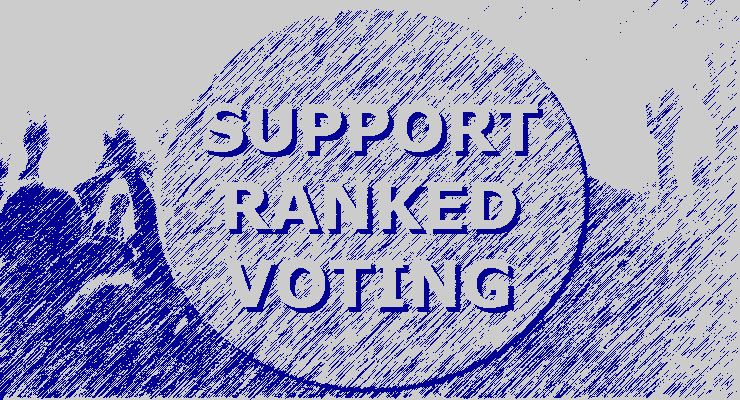
A nationwide battle to push for use of ranked choice voting is underway and the first shots have already been let loose. Last year the first state system was fully authorized after voters in Maine, for the second time, backed instituting ranked choice voting statewide. That first-in-the-nation voting law has changed the national debate. A new article by Ben Winslow from Fox 13 Salt Lake City has the latest:
A deadline is approaching for cities across Utah to decide if they want to experiment with ranked choice voting. The Utah Lt. Governor’s Office tells FOX 13 that West Jordan, Vineyard, Lehi and Salem have stated an intent to try it out. The deadline for cities to opt in is Dec. 31.
Ranked choice voting is being implemented in the 2019 municipal election cycle as a pilot project passed by the Utah State Legislature. Instead of voting on candidates as “hot or not,” you rank them from “first to worst.” West Jordan Mayor Jim Riding tried it out at a holiday luncheon for public works employees. He handed out ballots with the names of superheroes from Ant Man to Wonder Woman.
Read the full article here. But for America’s army of local, state and federal election workers, election judges, election clerk, and poll workers, what will a switch to a new system mean? At the end of this article, you can watch a video published on YouTube by the Washington State Association of County Auditors from a recent conference held in Davenport, Washington. The June 14th presentation is meant to teach you about the challenges and solutions faced during the administration of ranked choice voting in state and local settings. According to Democracy Chronicles’ friends at at the nonpartisan nonprofit FairVote, an organization with its headquarters in Takoma Park, Maryland:
Ranked choice voting (RCV) makes democracy more fair and functional. It works in a variety of contexts. It is a simple change that can have a big impact. With ranked choice voting, voters can rank as many candidates as they want in order of choice. Candidates do best when they attract a strong core of first-choice support while also reaching out for second and even third choices. When used as an “instant runoff” to elect a single candidate like a mayor or a governor, RCV helps elect a candidate that better reflects the support of a majority of voters. When used as a form of fair representation voting to elect more than one candidate like a city council, state legislature or even Congress, RCV helps to more fairly represent the full spectrum of voters.
The presentation includes a discussion with election experts Chris Hughes and Karen Brinson Bell, PMP. Bell is an Elections Administration and Ranked Choice Voting Project Consultant based out of Charleston, South Carolina and working with the Ranked Choice Voting Resource Center. According to Bell’s LinkedIn Account, she is:
…a multifaceted leader and certified project manager with more than 11 years of experience implementing and administering voter registration processes and voting equipment systems for federal, state, county, and municipal elections. More than twenty years of professional experience in departmental and regional project management, training development and facilitation, public relations, event planning, and sales in industries including elections, non-profit, and real estate.
On the other hand, Chris Hughes is a Staff Attorney at FairVote where he:
…focuses on ranked choice voting at the local and state levels, with an eye towards national implementation. He has studied and worked on voting rights, electoral reform, and civil rights, working for structural reforms to electoral systems and litigation to enforce voting and other civil rights.
Chris graduated with a B.A. in International Studies from the University of Miami in May 2012 and received his J.D. from New York University School of Law in 2015. He interned at the Connecticut Commission on Human Rights and Opportunities and the ACLU Voting Rights Project while in law school. Chris also served as an Executive Articles Editor on NYU’s Annual Survey of American Law and represented two refugee clients through the International Refugee Assistance Project (IRAP) while in law school.
The video is about 60 minutes. Take a look:
https://www.youtube.com/watch?v=-kMal9BBFQE
Leave a Reply